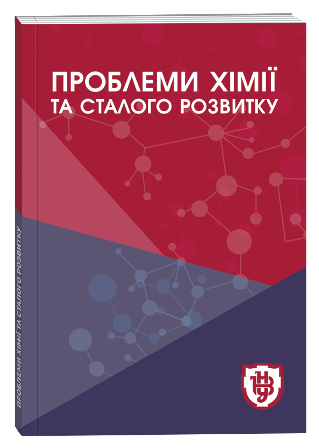MODELING THE TRAINING OF FUTURE DIGITAL TECHNOLOGY SPECIALISTS IN HIGHER EDUCATION INSTITUTIONS FOR THE USE OF ADAPTIVE SYSTEMS
DOI:
https://doi.org/10.32782/pcsd-2025-1-16Keywords:
professional competence, digital technology specialists, adaptive system, modeling, model, innovative methods, higher education, professional competenceAbstract
Purpose of the work. The study of methodological and organizational aspects of training specialists in the field of digital technologies is being updated against the background of the general transformation of the higher education environment. The purpose of the article is to develop a model for training future specialists in the field of information technologies in higher education institutions to use adaptive systems. Modeling allows you to develop a visual scheme for practical support of the effectiveness of educational activities in the established direction. Methodology. The following methods were used in the research process: theoretical – for studying scientific and methodological materials, generalizing information; pedagogical modeling method – for the purpose of studying pedagogical objects by modeling the structural-content, procedural and conceptual characteristics of the educational process. Scientific novelty. The main directions of improving the system of training future specialists in digital technologies are analyzed, including the use of interactive and immersive teaching methods. The main competencies of specialists in the field of information technologies that should be formed in the process of higher education are highlighted. The emphasis is on the concept of forming interdisciplinary connections within the proposed model. Within the proposed model, target, content, procedural, educational-technological and result-diagnostic components are distinguished. Conclusions. The complementarity and interdependence of individual components of the proposed model are established. It is proven that modeling is an effective method of organizational support for the process of training future digital technology specialists in higher education institutions for the use of adaptive systems.
References
Di Vaio A. The role of digital innovation in knowledge management systems: A systematic literature review. Journal of business research. 2021. № 123. Р. 220–231. https://doi.org/10.1016/j.jbusres.2020.09.042
Moeini M. Theory borrowing in IT-rich contexts: Lessons from IS strategy research. Journal of Information Technology. 2020. № 35(3). Р. 270–282. https://doi.org/10.1177/0268396220912745
Caro M. F., Josyula D. P., Jiménez J. A. Multi-level pedagogical model for the personalization of pedagogical strategies in intelligent tutoring systems. Dyna. 2015. № 82(194). Рр. 185–193.
Casey A., Bjørke L. Teachers’ experiences of enacting pedagogical models and models-based practice: a systematic mixed study review. Physical Education and Sport Pedagogy. 2024. Рр. 1–17.
Tangirov E. S. Mechanisms of educational study of students on the basis of modern pedagogical technologies. Spectrum Journal of Innovation, Reforms and Development. 2022. № 4. Рр. 247–250. URL: https://sjird.journalspark.org/index.php/sjird/article/view/108
Ментинська І. Етапи становлення комп’ютерної термінології на тлі розвитку інформаційних технологій в Україні. Теорія і практика викладання української мови як іноземної. 2023. № 17. С. 181–190. URL: https://openarchive.nure.ua/handle/document/25274
Castro M., Tumibay G. A literature review: efficacy of online learning courses for higher education institution using meta-analysis. Education and Information Technologies. 2021. № 26(2). Рp. 1367–1385. doi: https://doi.org/10.1007/s10639-019-10027-z
Haleem A., Javaid M., Qadri M., Suman R. Understanding the role of digital technologies in education: A review. Sustainable Operations and Computers. 2022. № 3. Рp. 275–285. doi: https://doi.org/10.1016/j.susoc.2022.05.004
Reis D., Fleury А., Carvalho М. Consolidating core entrepreneurial competencies: Toward a meta-competence framework. International Journal of Entrepreneurial Behavior & Research. 2021. № 27(1). doi: https://doi.org/10.1108/IJEBR-02-2020-0079
Sinambela Е., Mardikaningsih R., Arifin S., Ayu H. Development of self-competence and supervision to achieve professionalism. Journal of Islamic Economics Perspectives. 2020. № 1(2). doi: https://doi.org/10.35719/jiep.v1i2.13
Dzwigol Н., Dzwigol-Barosz М., Miśkiewicz R., Kwilinski А. Manager competency assessment model in the conditions of industry 4.0. Entrepreneurship and Sustainability Issues. 2020. № 7(4). doi: https://doi.org/10.9770/jesi.2020.7.4(5)
Mitschek М., Sanares R., del Rosario М., Doctor Jr. Effectiveness and stakeholders of the student information system integration in higher education institutions. Journal of Innovations in Business and Industry. 2024. № 2(4). Рp. 199–206. doi: https://doi.org/10.61552/JIBI.2024.04.002
Gorski А., Ranf Е., Badea D., Halmaghi Е., Gorski Н. Education for Sustainability – Some Bibliometric Insights. Sustainability. 2023. № 15(20). doi: 10.3390/su152014916
Baird А., Parayitam S. Employers’ ratings of the importance of skills and competencies college graduates need to get hired: Evidence from the New England region of USA. Education + Training. 2019. № 61(5). Рp. 622–634. doi: https://doi.org/10.1108/ET-12-2018-0250
Hernandez-de-Menendez М., Morales-Menendez R. Escobar Competencies for Industry 4.0. Int J Interact Des Manuf. 2020. № 14. Рp. 1511–1524. doi: https://doi.org/10.1007/s12008-020-00716-2







